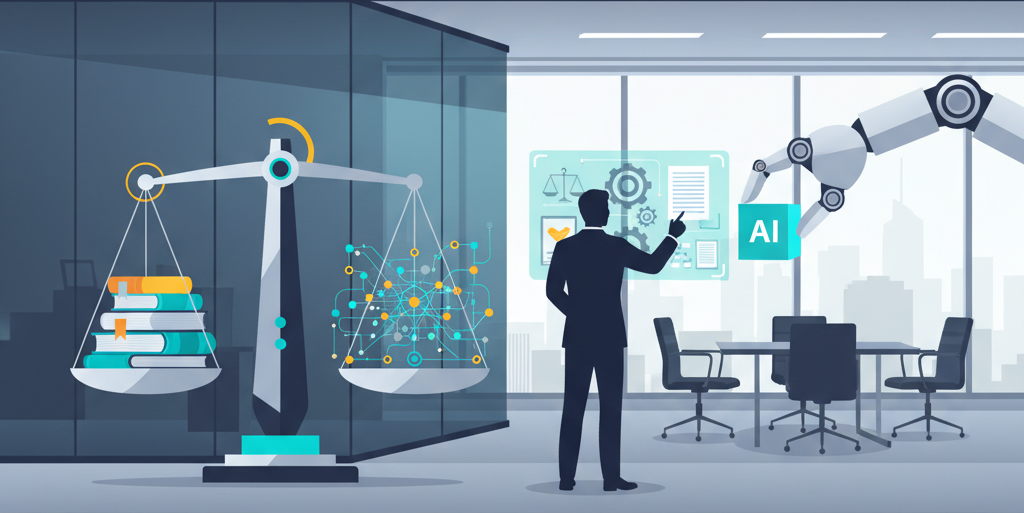
Why legal professionals must adapt their privacy practices in an AI-powered legal world?
Artificial intelligence is reshaping how legal professionals operate — especially in the realm of contract drafting and review. But as adoption accelerates, AI is introducing new challenges that go beyond technology. Chief among them: data privacy.
In the past, legal teams might not have thought twice about storing or transmitting documents for processing. Now, with personal data embedded in contracts and AI models interacting with that data in new ways, lawyers are stepping into unfamiliar territory. Privacy isn’t just the IT department’s concern; it’s quickly becoming a core competency for modern legal professionals.
Where Privacy Risks Arise in AI-Powered Legal Work
Contracts are rich in sensitive information. From employee compensation details to customer addresses and financial account numbers, they routinely include personally identifiable information (PII). When AI tools — particularly those hosted in the cloud — process this data, they create potential for exposure, misuse, or regulatory non-compliance.
Whether reviewing an NDA or analyzing terms in a complex vendor agreement, lawyers using AI tools must ask: where is this data going? Who has access to it? Is it stored or used for further model training?
Lawyers as Data Stewards — A Shifting Role
Lawyers have always played a gatekeeping role for sensitive information. But AI has introduced a new layer of complexity — one that demands proactive understanding of how data flows through digital tools.
At law firms, privacy oversight is critical not just for client trust, but for meeting regulatory obligations when handling confidential contracts. For in-house legal teams, the stakes are even higher: contracts may contain employee data, procurement records, customer information, and more — all subject to internal audit and external regulation.
Whether you’re negotiating terms with AI vendors or managing your own organization’s employment agreements, it’s increasingly your responsibility to ensure AI tools meet privacy expectations.
Regulatory Landscape: What Lawyers Must Watch
Around the world, regulators are turning their attention to this emerging intersection between AI and privacy. Key frameworks include:
- GDPR (EU): With provisions around automated decision-making and strict rules on processing PII, the General Data Protection Regulation requires a privacy-first approach to any AI use.
- CPRA (California): The California Privacy Rights Act expands data rights for individuals and introduces new rules around data sharing and purpose limitation.
- EU AI Act (pending): This new legislation classifies legal use cases as high-risk and may require transparency and oversight around AI tools.
- Canada’s Consumer Privacy Protection Act (CPPA), Brazil’s General Data Protection Law (LGPD), and others: Emerging national frameworks around the world signal global convergence on the need for responsible data processing — with enforcement growing stronger.
For lawyers, staying ahead of these developments isn’t optional. It’s essential to risk mitigation and professional ethics.
Best Practices for Lawyers Using AI Tools
To navigate this new terrain, legal professionals should integrate thorough privacy due diligence into their workflows. That includes:
Vetting Tools Carefully
Understand whether AI systems operate locally (on-device) or in the cloud — and whether the vendor retains or shares the data processed by the AI.
Asking the Right Questions
Who has access to the data? Is it used for training? What audits or certifications does the vendor provide?
Drafting Clear Internal Policies
Set rules for AI tool use by contract type, information sensitivity, and team.
Updating Client & Employee Disclosures
Ensure privacy notices and contract terms reflect AI involvement.
Privacy as a Trust Signal
Legal work is built on trust. In the AI era, that trust depends not just on quality and speed, but on a demonstrable commitment to privacy. Clients expect it. Regulators demand it. As a result, the firms and legal departments that embed privacy into their AI workflows will have a strategic edge.
BoostDraft is built for this new era — with an on-device architecture that keeps your data private by default. But whether you’re using BoostDraft or any other tool, understanding your privacy obligations is no longer optional.
Want a deeper dive?
Download our white paper, Data Privacy & Contract AI: The Compliance Playbook, to explore the regulatory landscape, vendor questions, and actionable frameworks for AI-era compliance.

